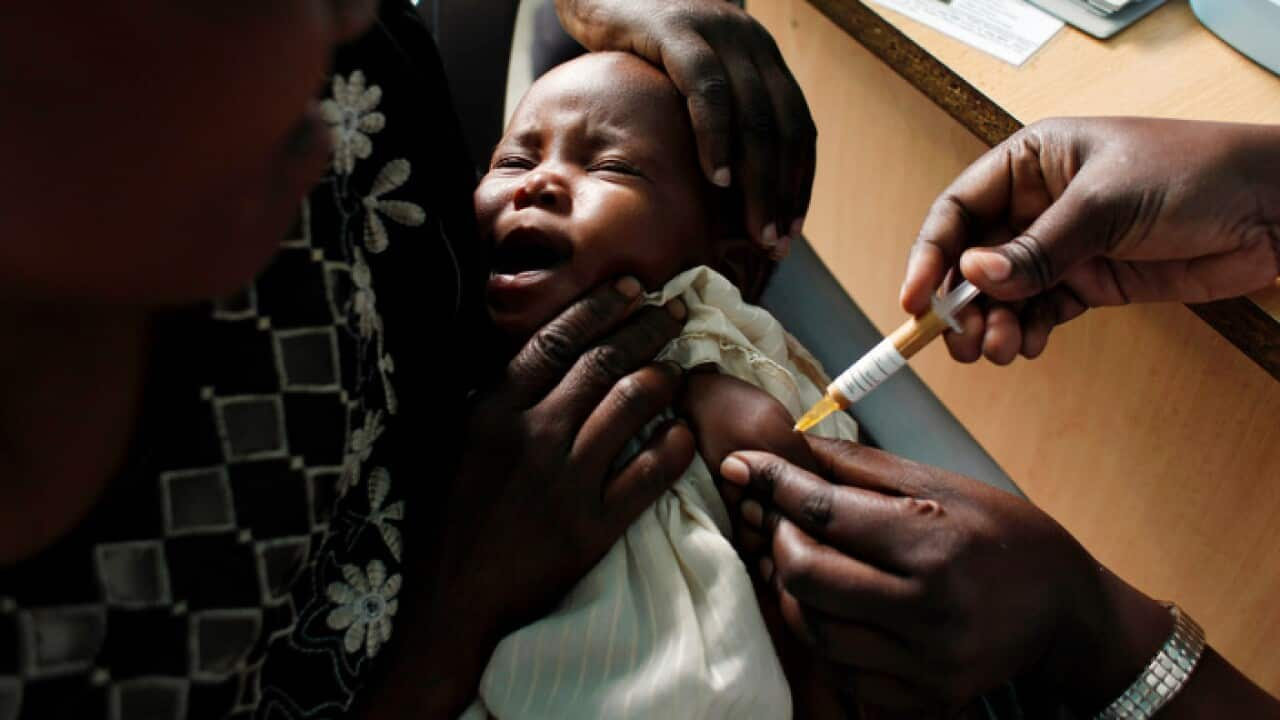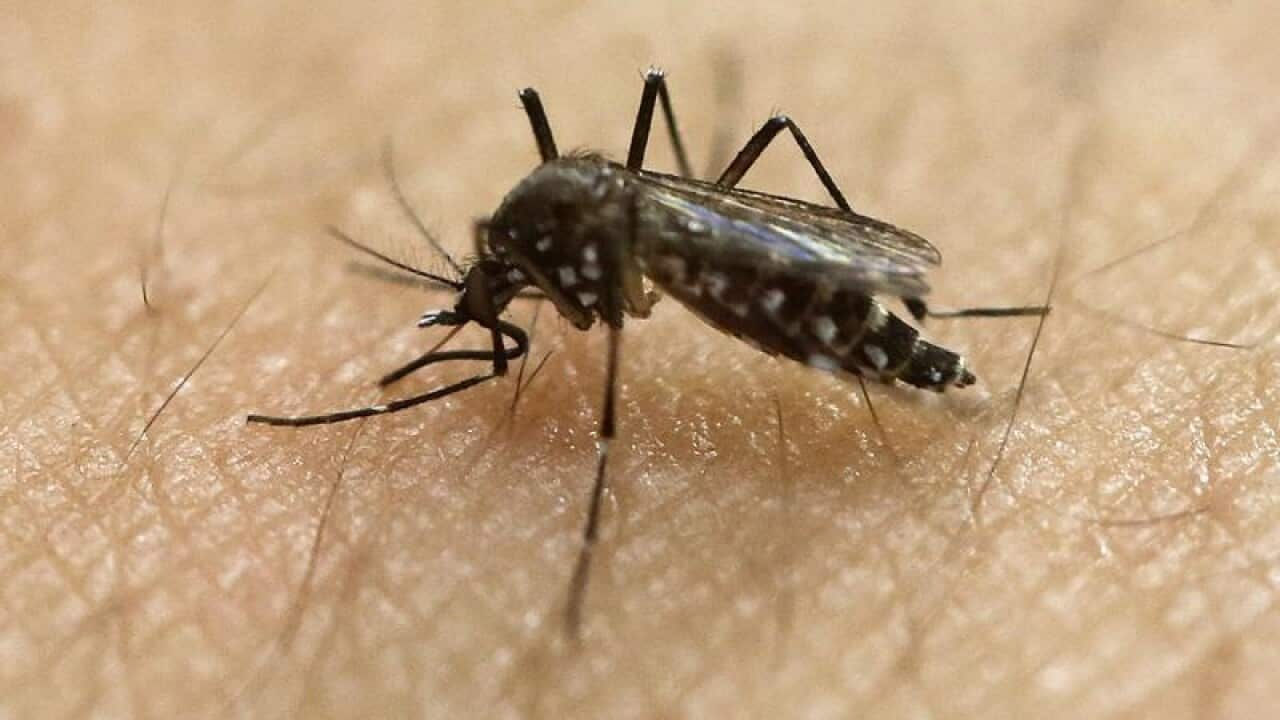Malaria is one of the world's biggest killers, with 435,000 people dying from the mosquito-borne disease every year.
Of those, 250,000 are African children, making it a public health problem that consumes the scientific and medical communities.
Pedro Alonso from the World Health Organisation says this vaccine provides hope.
"The world has been, for the last 100 years, looking for a malaria vaccine," he said.
"And what we are witnessing today is the deployment, for the first time in history, of a malaria vaccine which happens to also be a first vaccine against a human malaria parasite.
"So this is a massive success of the research community producing a vaccine against a parasite, a vaccine against the malaria."
Known at RTS,S, the vaccine trains the immune system to attack the malaria parasite.
In clinical trials, it was found to prevent about four out of 10 malaria cases.
Scientists say it’s much harder to develop a vaccine against a parasite than it is to prevent a bacteria or virus.
Kate O'Brien from the World Health Organisation says this vaccine is no 'silver bullet'.
"As much of a milestone as it is, it is an imperfect vaccine against a complex disease, but it's also a vaccine that has significant potential to save lives and deliver on the health aspirations that we have for all children around the world," she said.

The roll-out of the vaccine has begun in Malawi. Source: AAP
The roll-out of the vaccine has begun in Malawi - it will then start in Ghana and Kenya.
It'll be given to infants under the age of two - they'll need four doses over 18 months.
The vaccination pilot program will take place over five years, and it's estimated between one-and-a-half and two million children will receive the vaccine.
Malawi mother Alita Tsitsi had no hesitation in having her young children treated with the anti-Malaria injection.
"My husband's illness from malaria prompted me to come here for the malaria vaccine because I heard an announcement in my village that the hospital was vaccinating children against malaria. Malaria is a dangerous disease," she said.
"When I saw how ill my husband was from malaria, I was concerned that if my children got ill from malaria, it would be much worse for them.
"I don't want my child to suffer from malaria, that is why my child is getting the malaria vaccine."
There's a good reason for Malawi having been chosen as the first African country to undertake this pilot vaccination program.
It has one of Africa's highest incidence of the disease, as Michael Kayange from Malawi's Ministry of Health explains.
"This is malaria vaccine is very important for Malawi because malaria is a huge public health problem in Malawi," he said.
"We see about six million cases each year, and we register close to 3,000 deaths each year.
"And per day, I would say we register about eight deaths every day. So it's quite a huge problem, a public health problem in Malawi.
"And that's why this malaria vaccine which has potential to prevent some cases and also save some lives, as a country we're quite positive about it and we are happy that we're introducing this vaccine."
In the meantime, experts are warning families in areas prone to malaria outbreaks they must continue to use bed nets and insecticides because this immunisation program will take time to protect the people of Africa.


